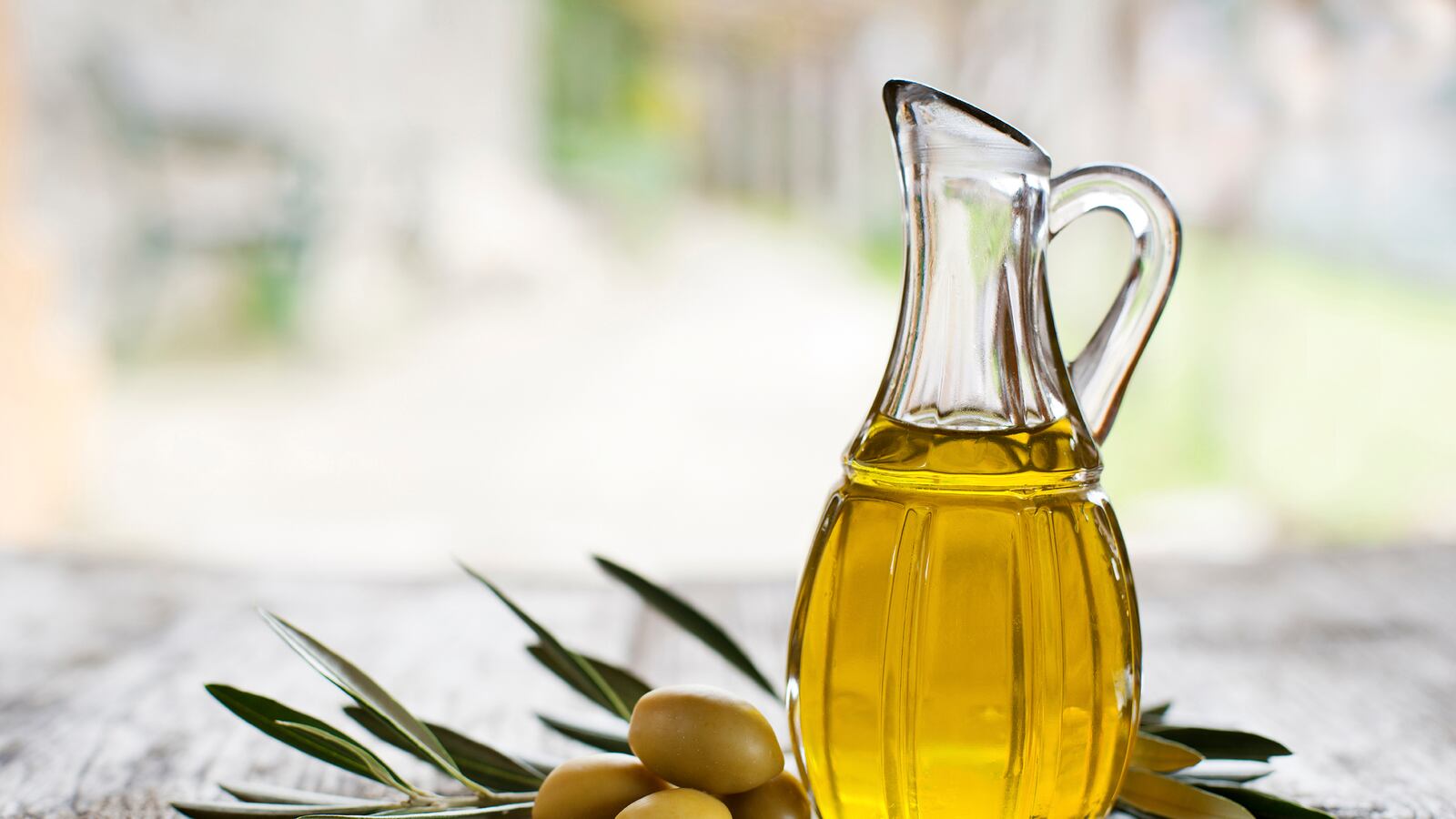New data out Monday unveiled a potential new reason to worship olive oil: a reduced risk of breast cancer.
Published in the Journal of American Medicine, the study analyzed the incidence of breast cancer in 4,282 women aged 60-80 who were kept on one of three specific diets: a Mediterranean diet supplemented with extra virgin olive oil (EVOO), a Mediterranean diet supplemented with nuts, and a low-fat diet (the control).
After a median of five years, the researchers concluded that the 1,476 women on the Mediterranean EVOO diet had a 68 percent lower risk of malignant breast cancer than the 1,391 women on the control diet. The majority of the women, whose average age was 67, had undergone menopause before 55. Just 3 percent reported using hormone therapy.
The epidemiologist behind the study, Dr. Miguel A. Martínez-González, was a principal investigator in the landmark PREDIMED (Prevención con Dieta Mediterránea) study—the largest randomized controlled experiment ever done on the preventive effects of a Mediterranean diet on cardiovascular disease.
Published in February 2013, the study found that eating a Mediterranean diet supplemented by EVOO could reduce the risk of heart attack or stroke by 30 percent. More than 7,000 people were recruited for the study, all at higher risk of cardiovascular disease due to things like smoking or type II diabetes. The study is viewed as one of the seminal pieces of research on the benefits of the Mediterranean diet (MeDiet). The diet plan used, which is outlined in a 70-page paper, was approved by an institutional review board.
It has acted as the framework for many subsequent studies, including this one. The main characteristics of the MeDiet are moderate to high levels of non-refined grains, legumes, nuts, fruits, vegetables, olive oil, and dairy products such as yogurt and cheese. It also means low consumption of red meat, and regular consumption of red wine (specifically at meals). In other words: lots of plant-based food, olive oil, and red wine.
Noted in the protocol is the research that laid the groundwork for this diet, dating back to the studies of Dr. Ancel Keys in the 1950s. Keys, a psychologist and native of the Midwest, zeroed in on the dietary patterns of olive-growing areas in Greece and Southern Italy. This population, at the time, had one of the highest mortality rates in the world and the lowest incidence of chronic diseases. Keys wondered if the diet may be part of the reason why.
In the decades following his work, researchers would find a host of benefits from the diet—including, but not limited to, reduced risk of Parkinson’s disease, Alzheimer’s disease, heart disease, obesity, and increased longevity of life. Martínez-González’s new study, however, is the first large-scale look at the diet’s potential impact on breast cancer risk.
"The results of the PREDIMED trial suggest a beneficial effect of a MeDiet [Mediterranean diet] supplemented with EVOO in the primary prevention of breast cancer,” the study’s conclusion reads. “The intervention paradigm implemented in the PREDIMED trial provides a useful scenario for breast cancer prevention because it is conducted in primary health care centers and also offers beneficial effects on a wide variety of health outcomes.”
Martínez-González does stress the importance of taking the results of the study with a grain of salt. His study, like others on the benefits of the MeDiet, is not without limitations. The number of women who actually contracted breast cancer in the study was small, suggesting that a study with a higher incidence rate is needed. Furthermore, the authors did not measure (on an individual basis) how many women did regular mammograms—which may have influenced the end result.
While the report is far from a definitive link between the MeDiet and reduced breast cancer rate, it’s a great foundation for new research in the future. Until then, pass the red wine.






